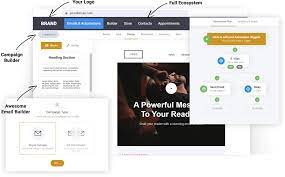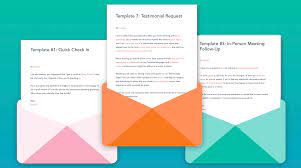Targeted advertising is a marketing strategy that involves delivering promotional messages to specific groups of people based on their demographics, interests, and behavior. This approach allows businesses to reach their ideal audience with greater precision and efficiency, resulting in higher conversion rates and improved return on investment.
One of the key benefits of targeted advertising is that it enables businesses to tailor their messaging to the unique needs and preferences of different customer segments. For example, a clothing retailer might use targeted advertising to promote winter coats to customers living in cold climates while promoting swimwear to customers living in warmer regions. By delivering relevant messages to the right people at the right time, businesses can increase the likelihood that their ads will be well-received and acted upon.
Another advantage of targeted advertising is that it allows businesses to optimize their ad spend by focusing on the most promising customer segments. By analyzing data on customer behavior and purchase history, businesses can identify which groups are most likely to convert into paying customers and allocate their resources accordingly. This approach can help businesses reduce waste by avoiding ad placements that are unlikely to generate meaningful results.
Targeted advertising also offers benefits for consumers. By receiving ads that are relevant and useful, consumers can save time and effort in finding products or services that meet their needs. In addition, targeted advertising can help consumers discover new products or services they may not have been aware of otherwise.
However, there are also concerns about privacy when it comes to targeted advertising. Some consumers may feel uncomfortable with companies collecting data about their browsing habits or personal information for marketing purposes. It is important for businesses to be transparent about how they collect data and allow consumers to opt-out if they do not want their information used for targeted advertising.
In conclusion, targeted advertising has become an increasingly popular marketing strategy due to its ability to deliver personalized messages to specific audiences with greater efficiency and effectiveness. While there are concerns around privacy, this approach offers benefits for both businesses and consumers when executed ethically and responsibly. By leveraging the power of targeted advertising, businesses can improve their marketing outcomes and build stronger relationships with their customers.
5 Key Benefits of Targeted Advertising for Businesses
- Increased customer engagement
- Improved ROI
- Higher click-through rates
- More cost effective
- Easier tracking and measurement
Drawbacks of Targeted Advertising: Intrusiveness, Unfairness, and Privacy Concerns
Increased customer engagement
Targeted advertising has revolutionized the way businesses approach their marketing efforts. One of the key benefits of this approach is increased customer engagement, which can lead to higher levels of loyalty and repeat business.
By delivering messages that are tailored to specific customer segments, businesses can create a more personalized and relevant experience for their customers. This approach can help to build stronger relationships with customers by demonstrating that a business understands their needs and preferences.
In addition, targeted advertising allows businesses to optimize their messaging for different channels and platforms. For example, a business might use different messaging for social media ads versus email marketing campaigns. By tailoring messaging to specific channels, businesses can increase the likelihood that their messages will resonate with customers and lead to higher engagement.
Increased customer engagement can also lead to higher levels of loyalty and repeat business. When customers feel understood and valued by a business, they are more likely to return for future purchases and recommend the business to others. This can result in long-term growth and success for the business.
Overall, targeted advertising offers businesses a powerful tool for increasing customer engagement and building stronger relationships with their customers. By delivering personalized messages that resonate with specific customer segments, businesses can create a more meaningful experience for their customers and drive long-term growth.
Improved ROI
One of the key benefits of targeted advertising is improved return on investment (ROI). By targeting ads more precisely, businesses can reduce their ad spend while still achieving the same or better results than broader campaigns.
For example, a business that sells high-end beauty products may find that their ads perform better when targeted to women aged 25-45 with an interest in luxury goods. By focusing their ad spend on this specific audience, the business can reduce waste and increase the likelihood that their ads will be well-received and acted upon. This approach can result in a higher ROI compared to broader campaigns that target a less specific audience.
In addition, targeted advertising allows businesses to optimize their ad spend by identifying which customer segments are most likely to convert into paying customers. By analyzing data on customer behavior and purchase history, businesses can allocate their resources more effectively and avoid wasting money on ad placements that are unlikely to generate meaningful results.
Overall, improved ROI is a significant advantage of targeted advertising. By delivering personalized messages to specific audiences with greater precision and efficiency, businesses can achieve better outcomes while reducing waste and optimizing their marketing spend.
Higher click-through rates
One of the biggest advantages of targeted advertising is that it often results in higher click-through rates compared to generic campaigns. This is because targeted ads are designed to reach specific audiences who are more likely to be interested in the product or service being advertised.
When businesses use targeted advertising, they can tailor their messaging to the unique needs and preferences of different customer segments. This means that customers are more likely to see ads that are relevant and useful to them, which makes them more likely to click through and learn more about the product or service being advertised.
For example, if a business sells pet products, they might use targeted advertising to reach customers who have recently searched for pet supplies online or have shown an interest in pet-related content. By targeting these specific groups, the business can create ads that speak directly to their interests and needs, making them more likely to click through and make a purchase.
Higher click-through rates not only lead to increased traffic on a business’s website but also increase the chances of converting those visitors into paying customers. By reaching audiences who are already interested in their products or services, businesses can improve their chances of making a sale and generating revenue.
In conclusion, targeted advertising offers businesses the ability to create customized campaigns that appeal directly to specific customer segments. By doing so, they can increase click-through rates and improve their chances of converting visitors into paying customers. As online competition continues to grow, businesses must leverage the power of targeted advertising if they want to stay ahead of the curve and achieve success in today’s digital landscape.
More cost effective
One of the major benefits of targeted advertising is that it is more cost-effective compared to traditional advertising methods. With targeted advertising, businesses can reach potential customers who are more likely to be interested in their products or services, which means they can achieve better results with less money.
Since targeted advertising is directed towards a specific audience, businesses can avoid spending money on advertisements that are unlikely to reach their target market. This means that businesses with limited budgets can still make a significant impact with their marketing efforts without breaking the bank.
For example, a small business owner who operates a local coffee shop can use targeted advertising to promote their business to people who live within a certain radius of their store. By targeting people who are likely to be interested in coffee and live nearby, the business owner can save money by not wasting ad spend on people who are unlikely to visit their store.
In addition, targeted advertising allows businesses to track the performance of their ads and adjust them as needed. This means that businesses can optimize their campaigns for maximum effectiveness and get better results for every dollar spent.
Overall, the cost-effectiveness of targeted advertising makes it an attractive option for businesses looking to maximize their marketing budget. By reaching potential customers more efficiently and effectively, businesses can achieve better results while keeping costs down.
Easier tracking and measurement
One of the significant benefits of targeted advertising is that it makes tracking and measuring performance much easier for businesses. Unlike traditional advertising methods, targeted ads allow businesses to collect data on how their ads are performing in real-time. This data can include metrics such as click-through rates, conversion rates, and engagement levels.
By having access to this data, businesses can quickly identify which ads are generating the most significant returns on investment and which ones need improvement. They can then use this information to make adjustments to their campaigns, such as changing the messaging or adjusting the targeting criteria. This approach allows businesses to optimize their ad spend by focusing on the most effective ads and avoiding those that are not generating results.
Another advantage of easier tracking and measurement is that it allows businesses to experiment with different ad formats and targeting strategies more easily. By testing different approaches, businesses can discover what works best for their target audience and refine their campaigns accordingly. This iterative approach can help businesses achieve better results over time by continuously improving their advertising efforts.
In conclusion, targeted advertising offers many benefits for businesses, including easier tracking and measurement of performance. By collecting data on how their ads are performing in real-time, businesses can quickly identify what is working and what needs improvement. This approach allows them to optimize their ad spend by focusing on the most effective ads while experimenting with new approaches to achieve even better results in the future.
Intrusive
One of the cons of targeted advertising is that it can be intrusive and annoying for users. While the goal of targeted advertising is to deliver relevant ads to specific audiences, sometimes this approach can backfire and result in users feeling bombarded with ads that are not relevant to their interests or needs.
This can happen when businesses rely too heavily on data-driven targeting without considering the user experience. For example, a user may have searched for a product or service as a one-time occurrence, but then find themselves constantly receiving ads related to that search long after they have moved on from that interest. This can lead to frustration and annoyance, causing users to develop negative feelings towards the brand.
Furthermore, targeted advertising can also be perceived as invasive when it involves collecting and using personal data without clear consent or transparency. Users may feel uncomfortable with companies tracking their browsing history or collecting other personal information in order to deliver more personalized ads.
To mitigate these concerns, businesses should strive to strike a balance between delivering relevant ads and respecting user privacy and preferences. This includes providing clear opt-out options for users who do not want their data used for targeted advertising, as well as being transparent about how data is collected and used.
Overall, while targeted advertising offers many benefits for businesses and consumers alike, it is important to be mindful of potential downsides such as intrusiveness and annoyance. By taking a user-centric approach and prioritizing transparency and consent, businesses can build trust with their audiences while still reaping the benefits of targeted advertising.
Unfair
One of the major cons of targeted advertising is that it can be perceived as unfair by some consumers. This is because targeted advertising involves delivering specific ads to certain groups of people based on their demographics, interests, and behavior. As a result, some individuals may feel like they are being singled out for different types of ads than others.
For example, imagine a scenario where two people are browsing the same website for shoes. Person A is shown an ad for high-end designer shoes, while Person B is shown an ad for budget-friendly sneakers. Person A may feel like they are being unfairly targeted based on their income level or perceived purchasing power, while Person B may feel like they are being overlooked or excluded from more upscale offerings.
This perception of unfairness can be exacerbated by the fact that targeted advertising often relies on data collection and analysis to determine which ads to show to which users. Some consumers may be uncomfortable with the idea of companies collecting data about their online behavior or personal information in order to deliver more relevant ads. This can lead to feelings of mistrust or resentment towards advertisers who use targeted advertising.
Furthermore, there is also the risk that targeted advertising can perpetuate existing biases and inequalities in society. For example, if certain groups are consistently shown ads for low-paying jobs or subpar products, this could reinforce negative stereotypes and limit opportunities for those individuals.
In conclusion, while targeted advertising has many benefits such as increased efficiency and effectiveness in marketing campaigns, it also has its downsides. The perception of unfairness associated with targeted advertising can lead to negative attitudes towards both advertisers and the products or services they promote. It’s important for businesses to consider these potential drawbacks when implementing targeted advertising strategies and ensure that they are not inadvertently perpetuating biases or inequalities in society.
Privacy concerns
Targeted advertising has revolutionized the way businesses reach and engage with their target audience. However, this marketing strategy is not without its drawbacks. One of the most significant cons of targeted advertising is privacy concerns.
Targeted advertising relies on collecting and analyzing data about users’ online behavior and personal information to deliver personalized ads. This process can raise privacy concerns, as users may not be aware that their data is being collected or how it will be used. Some users may feel uncomfortable with companies having access to their personal information or browsing history, which could potentially be used for purposes beyond advertising.
Moreover, targeted advertising can put users at risk of being exposed to fraudulent or malicious ads that could compromise their online security. Cybercriminals can use targeted ads to trick users into clicking on links or downloading malware, leading to identity theft or financial loss.
To address these concerns, businesses must prioritize transparency and user consent when collecting and using data for targeted advertising. They should clearly communicate what data they collect, how it will be used, and provide easy opt-out options for users who do not want their data used for advertising purposes.
In conclusion, while targeted advertising offers numerous benefits for businesses and consumers alike, it is essential to address privacy concerns associated with this marketing strategy. By prioritizing transparency and user consent in data collection practices, businesses can build trust with their customers while delivering effective targeted ads that resonate with their audience.





Very interesting topic, appreciate it for posting.Leadership
Thank you for sharing your thoughts on targeted advertising. It’s great to hear that you found the topic interesting. If you have any questions or insights related to targeted advertising, feel free to share them with us. Your engagement is appreciated!